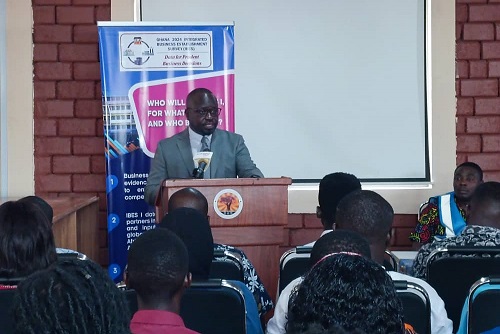
Ghana launches fifth IBES to boost national development
The Ghana Statistical Service (GSS) has officially launched the 2024 Integrated Business Establishment Survey (IBES), marking the commencement of the fifth edition of the survey.
Collaborating with key partners such as the Ministry of Trade and Industry, the Association of Ghana Industries (AGI), the World Bank, and various stakeholders from the public and private sectors, the 2024 IBES aims to provide comprehensive insights into the country's business landscape.
The survey will unfold in two phases, with Phase I, a census, set to commence on January 15, 2024. This initial phase will involve creating a detailed listing of all business units across the nation, capturing information on their characteristics. Phase II will consist of a sample survey targeting selected businesses to acquire in-depth data on their activities.
Preceding the data collection process, the GSS has undertaken several key activities, including consultative stakeholder engagements, as well as the recruitment and training of trainers, field officers, and other officials. The ultimate objective of IBES I is to update the Statistical Business Register and generate essential data crucial for national development.
During IBES I, all business units in Ghana, regardless of their nature (for-profit or not-for-profit), size, location, or structure (physical or online), will be enumerated. The survey aims to provide updated statistics on various aspects, including the activities, locations, ownership, ages, and sizes of businesses.
Specifically, IBES I will offer updated insights into business characteristics to inform policy, planning, and monitoring of business growth and national development programs.
It will also provide insight into the current structure of Ghana's economy, facilitating the revision of key macroeconomic indicators such as Gross Domestic Product (GDP), Producer Price Index (PPI), and the Index of Industrial Production (IIP).
The 2024 IBES will also look at the employment status of workers, aiding in addressing the gap between the labour needs of firms and the available skills as well as the characteristics of the informal sector, guiding the development of policies aimed at formalizing the economy and improving the welfare of workers in various sectors.
The GSS in a statement urged all Ghanaians to cooperate with IBES officials, ensuring active participation in the national exercise.